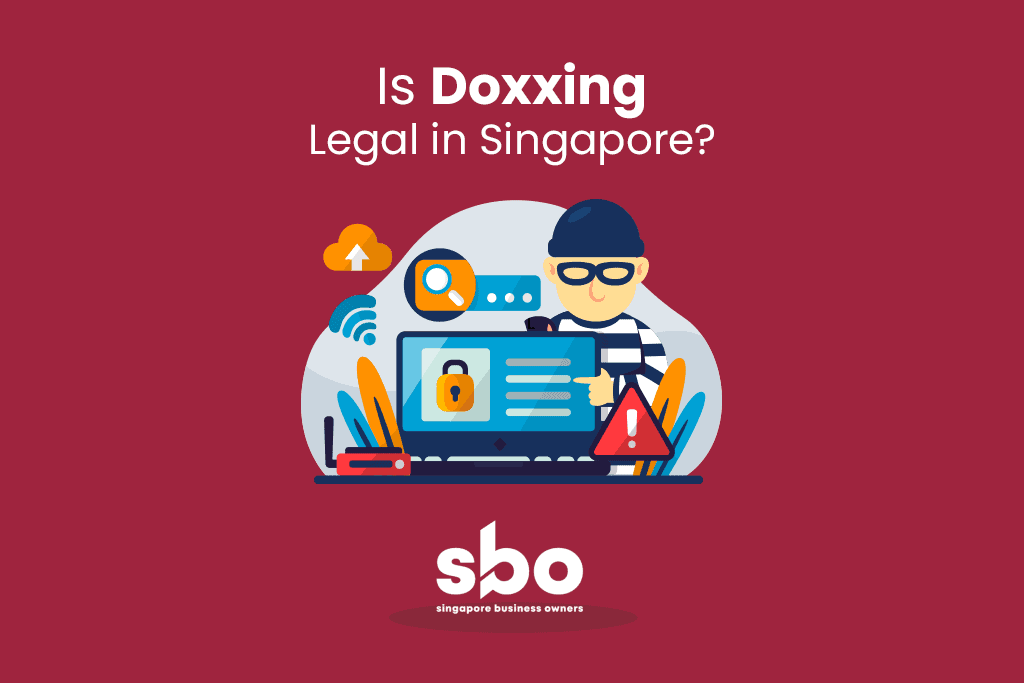Is Doxxing Legal in Singapore?
With the rise of the availability of personal information online, amendments to the Protection from Harassment Act 2014 (POHA) have been made...

With the rise of the availability of personal information online, amendments to the Protection from Harassment Act 2014 (POHA) have been made to enhance the protection of an individual against online harassment. A new offence termed “doxxing” came into effect on 1 January 2020.
What is Doxxing?
Doxxing includes revealing and circulating personal information of a person without their consent, with the malicious intent to threaten, harass or facilitate violence against them.
Types of Doxxing
Under the amendments to the POHA, there are three types of doxxing offences that may be committed:
- Publishing personal information of a person with the intention to cause harassment, alarm or distress;
- Publishing personal information of a person to cause fear of violence; or
- Publishing personal information of a person to facilitate the use of violence.
Publishing personal information with the intention to cause harassment, alarm or distress
Under Section 3 of the amended POHA, publishing personal information about a person, or anyone related to that person, with the intention to cause harassment, alarm, or distress, and in fact, causing harassment, alarm, or distress is an offence.
For example, if A releases personal information about B on a public forum, with the intention of causing distress to B, such an act by A may be considered an offence if anyone related to B feels distressed, even if their own personal information had not been shared.
Those convicted of this offence may be liable to a fine not exceeding $5,000 or an imprisonment term of 6 months, or both. These penalties may be doubled for repeat offenders.
Publishing personal information to cause fear of violence
Under Section 5 of the amended POHA, , publishing personal information about a person, or anyone related to that person, while intending, knowing, or having reasonable grounds to believe that it is likely to cause the person to believe that unlawful violence will be used against himself, or anyone related to him is an offence.
For example, if A releases personal information about B on a public forum, such an act by A may be considered an offence if B believes that violence will be used against him, or anyone related to him. A will not be guilty of this offence if only B’s family members or colleagues hold this belief. B has to hold this belief himself.
Persons convicted of this offence may be liable to a fine not exceeding $5,000 or an imprisonment term of 12 months, or both. Maximum penalties may be doubled for repeat offenders.
Publishing personal information to facilitate the use of violence
Further, under Section 5 of the amended POHA, publishing personal information about a person, or anyone related to that person, while intending, knowing, or having reasonable grounds to believe that it is likely to facilitate the use of unlawful violence against that person, or anyone related to that person is an offence.
For example, if A releases personal information about B on a public forum, such an act by A may be considered an offence if A’s actions assists and facilitates the use of violence against anyone related to B, even if not against B himself. A may still be liable even if B is not aware of the publication, as long as the publication was made with the intent to facilitate violence against B, or anyone related to him.
Those convicted of this offence may be liable to a fine not exceeding $5,000 or an imprisonment term of 12 months, or both. These penalties may be doubled for repeat offenders.
Differences between the Three Offences
Under section 3 of the amended POHA, the publisher has to have an intent to cause harassment, alarm or distress to be found guilty of an offence.
Whereas under section 5, the publisher may be found guilty even if the publisher did not intend to cause fear of violence or facilitate violence. It is sufficient to show that the publisher had known, or ought to have known, that the publisher’s actions were likely to cause such an outcome.
When is it not considered Doxxing?
Whether or not publishing personal information amounts to doxxing depends on the context in which it is being published.
For example, if you are sharing personal information with authorities to assist in criminal investigations or sharing a video of an incident to provide a factual account of the matter, this would not be considered doxxing.
Victims of Doxxing or those Accused of Doxxing If you feel that you are a victim of oxing, you should speak with a lawyer as soon as possible about the options available to alleviate your issues. These options may include:
- Lodging a police report;
- Pursuing legal action against the publisher and claiming damages as compensation; or
- Applying for protection order
Regardless of the cause of action you decide on, evidence is essential to substantiate your claim. If the offence was committed online, you should keep screenshots or save any form of evidence of the published information.
If you are accused of doxxing but feel that your conduct was reasonable, you may be able to resist any allegation or claim made against you .
In such a scenario, an insightful and experienced lawyer would be able to analyse and evaluate your case and explain your rights to you. For more information on Singapore’s doxxing laws, please feel free to contact RBN Chambers LLC.
Explore More Content
Table of Content

